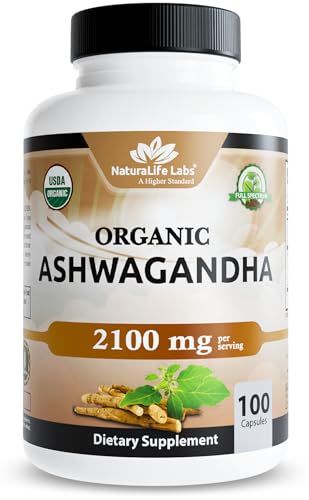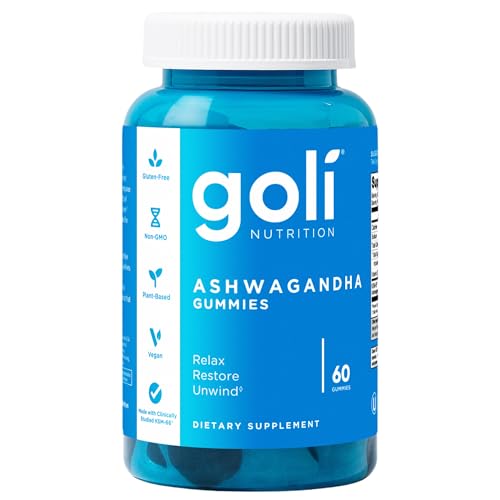Is Ashwagandha Good for Menopause? Exploring the Herb’s Soothing Powers
As we journey through different stages of life, our bodies often signal it’s time for change, a notion particularly true for women approaching or experiencing menopause. This period isn’t just a physical transformation but an emotional one, too.
And, I kept stumbling upon a common thread every now and then: the search for natural remedies to ease menopause symptoms. This curiosity has led me to a fascinating herb that’s been gaining attention – Ashwagandha, also known as Indian ginseng or winter cherry.
You might have heard about Ashwagandha in terms of stress relief or as a boost for overall wellness. But have you considered it as a companion during menopause? That’s what I’ve been curious about lately.
In my quest to find out if Ashwagandha is good for menopause, I’ve researched, listened to experts, and read some personal stories. And I’m here to share these insights with you.
Ashwagandha has been a topic of interest for its potential to smooth this transitional phase. Its adaptogenic properties are thought to help our bodies gracefully adapt to the changes brought on by menopause.
From reducing hot flashes to lowering stress and anxiety and improving sleep quality and mental well-being, Ashwagandha offers more than your average herb. While the scientific community is still uncovering the full range of its benefits, there’s a palpable excitement about how it might enhance our wellness routines during menopause.
Let’s explore the mysteries of this ancient herb and see if it helps you cope with menopause better. This is a friendly discussion among friends seeking answers, and I’m right here exploring with you.
The Biochemistry of this Ayurvedic Plant
Ashwagandha, scientifically known as Withania somnifera, is a small but mighty evergreen shrub deeply rooted in the traditions of Ayurvedic medicine. Originating from India and North Africa, this herb has been utilized for its roots and berries and is prized for its healing properties.
The herb’s name, derived from Sanskrit “ashva” (horse) and “gandha” (smell), reflects the diverse cultural perspectives surrounding it. Some cultures revere it for its supposed ability to impart the strength and vigor of a horse, while others value it for its calming, sedative aroma.

Withanolides are Ashwagandha’s key compounds, which give the herb its adaptogenic properties. Ashwagandha’s health benefits are largely attributed to withanolides, like those in ginseng and rhodiola. Ashwagandha is different from other herbs because of its potential impact on hormone regulation, especially cortisol levels, which are crucial for women going through menopause.
As a nightshade family member, it’s only recently that modern science has started peeling back the layers of this ancient herb. One exciting aspect of Ashwagandha’s biochemistry is its presumed ability to increase gamma-aminobutyric acid (GABA) levels, a neurotransmitter often associated with stress relief. This mechanism is similar to certain medications, like gabapentin, used in treating menopause-related hot flashes.
For supplements, Ashwagandha is mostly used for its roots, which are dried and powdered. This powder is then encapsulated or transformed into liquid extracts, making it accessible daily. The focus is on delivering the herb’s adaptogenic and hormonal balancing properties in a convenient, consumable form.
So, what does Ashwagandha do to help with stress and anxiety?
As an Adaptogen
Ashwagandha’s role as an adaptogen places it in a unique category of herbs believed to help the body manage and adapt to stress more effectively. As an adaptogen, Ashwagandha is thought to work by modulating the body’s stress response, providing a buffer against various stressors, whether they’re physical, chemical, or biological.
It’s not about stopping stress completely; that’s not really possible, right? Instead, Ashwagandha might help us manage stress more smoothly. Plus, it could also help boost our mood a little, which is always welcome during times like these.
Adaptogens like Ashwagandha are known for their balancing effect. They don’t just blunt the stress response; instead, they help the body respond to stress more balanced and nuancedly. This means potentially reducing the overproduction of stress hormones like cortisol and adrenaline, which can harm health when chronically elevated.
And, Ashwagandha may enhance serotonin production, often called the “feel-good” neurotransmitter. This increase in serotonin can play a significant role in uplifting mood and promoting a sense of well-being, which is often challenged during menopause.
The ability of Ashwagandha to alleviate anxiety symptoms and contribute to overall mental well-being makes it a promising natural option for those seeking relief from menopausal stress and its associated emotional upheavals.
That’s why it has gained popularity for its ability to ease life’s transitions, such as menopause, making it easier and more comfortable for us. Supplementing them can help us feel better, and they can even help us sleep more soundly and wake up feeling more energetic. But make sure you get a quality product with solid research.
How Is Ashwagandha Good for Menopause? Using the Herb As a Menopause Relief Boon

Although more research is needed to establish the specific effects of Ashwagandha on menopause, its potential to reduce stress, promote hormone balance, and support overall well-being makes it an attractive natural option for women struggling through this transitional period.
I want to discuss how Ashwagandha can help with a supportive natural remedy during menopause, with various benefits, to help you deal with this transition more comfortably. But always talk to a doctor before starting any new supplements.
I am just providing you with information, and it is always best to consult a medical professional before adding supplements to your routine. Because every individual’s body is different, it is important to ensure that any new supplement does not interfere with existing medications or health conditions.
With that being said, let’s explore the potential benefits of Ashwagandha during menopause.
Hormonal Balance and Stress Reduction
- Ashwagandha comes as a gentle helper on the emotional rollercoaster of menopause. As an adaptogen, it lowers stress, and rhapontic rhubarb extract reduces menopausal estrogen loss, which may be more evident now.
- One of the ways it does this is by reducing the activity of the hypothalamic-pituitary-adrenal axis. This axis is responsible for regulating your body’s stress response.
- It regulates cortisol, the stress hormone, leading to a calmer mind and improved mental well-being. Imagine it as a soothing cup of tea for your nerves. For example, studies have noted significant stress reduction in individuals taking Ashwagandha.
- And for those restless nights? Ashwagandha may help improve your sleep quality, giving you the rest you deserve.
- High Potency Formula: 2100 mg per serving with organic ashwagandha powder and root extract.
- Enhanced Absorption: Includes black pepper extract for improved bioavailability.
- Pure & Natural Ingredients: Free from fillers, preservatives, gluten, soy, sugar, and non-GMO.
- FDA Registered & GMP Compliant: Manufactured in a facility adhering to strict quality standards.
- Easy to Use: Recommended three capsules daily with meals for optimal results.
Hot Flashes
- Ashwagandha might be a secret weapon against those sudden, uncomfortable hot flashes. By balancing hormone levels, it can reduce their frequency and intensity.
- Ashwagandha has anti-inflammatory properties that can help reduce inflammation, possibly contributing to hot flashes.
- By promoting relaxation and calmness, ashwagandha can also regulate the body’s response to stress and anxiety, common triggers for hot flashes.
- Some believe Ashwagandha can help regulate body temperature, too, adding an extra layer of comfort against hot flashes.
No products found.
Mood Swings
- Menopause can mean mood swings, but Ashwagandha could help smooth those emotional waves. It stabilizes mood by balancing hormones like cortisol.
- It may also boost serotonin levels, enhancing your mood and helping to lift those menopausal blues.
- By decreasing stress and anxiety, it can bring a more balanced emotional state, making mood swings less intense.
Relaxing Sleeping Aid
Menopause often brings sleep disturbances, and Ashwagandha’s role in enhancing sleep quality can be especially helpful during this time. Here’s how it can make a difference:
- Menopause can make it harder to fall asleep. Ashwagandha helps ease menopausal insomnia by reducing the time it takes to fall asleep.
- It’s not just about the quantity of sleep but the quality, too. Ashwagandha helps achieve deeper, more restful sleep, often disrupted during menopause.
- Longer sleep duration is another benefit, addressing issues like waking up in the middle of the night, a frequent concern for menopausal women.
- By decreasing the frequency of awakenings after falling asleep, Ashwagandha can contribute to a more continuous and restful night’s sleep.
- An often-overlooked aspect of menopausal sleep disruption is the impact on daytime alertness. Ashwagandha can help enhance mental alertness upon waking.
- Plant-Based Wellness: Vegan, non-GMO, gluten-free, and gelatin-free Ashwagandha gummies.
- Top-Rated in America: Ranked as America’s #1 Ashwagandha Vitamin Brand.
- High-Quality Ashwagandha: Features KSM-66 Ashwagandha for enhanced bioavailability and multiple health benefits.
- Made in the USA: Crafted in allergen-free facilities with globally sourced ingredients for premium quality.
- Socially Responsible: Goli supports Vitamin Angels, contributing to global health initiatives.
Physical Performance and Endurance
- Feeling a bit more tired than usual during menopause? Ashwagandha might be the pick-me-up you need. It’s not just about stress relief; this herb is also known for boosting energy and physical performance.
- It helps improve your endurance and muscle strength. It’s like having an extra edge in your daily workouts or walks.
- A study involving cyclists found that those who supplemented with Ashwagandha could push themselves further, improving endurance.
- Try Ashwagandha if you’re dabbling in resistance training. Participants in a study who took Ashwagandha experienced more significant gains in muscle strength than those who didn’t.
- You can use Ashwagandha to improve your fitness regimen, whether you’re an athlete or not.
Immunomodulatory Effects
- Ashwagandha is acclaimed for its life-extending properties and role in boosting the immune system. The herb contains withanolide glycosides, compounds known for their anti-inflammatory effects. This property is crucial as it helps reduce overall bodily inflammation and supports a healthy immune system, a key concern during menopause.
- The herb enhances the efficiency and performance of immune cells, bolstering the body’s ability to fight infections and maintain overall health. Regular intake of Ashwagandha can lead to improved immune function, making the body more resilient against common infections and illness.
- In Ayurveda, Ashwagandha is classified as a Rasayana, implying its use in promoting longevity and rejuvenation. Current research, including human studies, suggests that Ashwagandha extract could be a potent immunomodulatory agent.
- It has been shown to activate macrophages, the key immune cells, and induce proliferation in murine splenocytes, which is important for a robust immune response. Given its effects on immune modulation, this adaptogen could be a future candidate for addressing viral and antimicrobial infections.
Mitochondrial Function and Longevity
- Ashwagandha enhances mitochondrial function, vital for energy production and overall cellular health. Improved mitochondrial function means better health span, lifespan, and muscle performance.
- This herb aids mitochondrial biogenesis and repair, underscoring its potential to promote longevity and wellness.
- Studies have shown that Ashwagandha can significantly increase lifespan, with some reporting an increase of over 20%.
Bone Health
- With declining estrogen levels during menopause, our bones need extra care. Ashwagandha has shown promise in improving bone health by increasing bone mineral density.
- It’s believed to help form new bone cells, maintaining strong bones as we navigate through menopause.
Cognitive Function
- If you’re dealing with menopausal brain fog or memory lapses, Ashwagandha might offer some clarity. It’s found to improve memory and focus.
- It also supports mental clarity, helping you think more clearly and cope with the cognitive challenges of menopause.
- Ashwagandha can be a stabilizing force for mood swings and emotional well-being, making it easier to handle the mental and emotional changes of menopause.
Managing Blood Sugar
- There’s evidence that Ashwagandha could benefit those with diabetes or high blood sugar. It’s like a natural support alongside your regular diabetes management plan.
- Studies have shown that Ashwagandha and other markers like hemoglobin A1c and insulin may significantly reduce blood sugar levels.
- It’s believed that Ashwagandha may encourage cells to absorb glucose from your bloodstream more efficiently, helping manage blood sugar levels.
Weight Management
- Managing weight during menopause can be tricky, but Ashwagandha could help. Its stress-reducing effects can indirectly aid in weight management. Stress is the body’s natural response to perceived danger, which can result in weight gain over time.
- Ashwagandha has also been shown to reduce cortisol levels and improve sleep quality, both of which are linked to weight gain. By reducing stress and promoting better sleep, ashwagandha may help prevent weight gain during menopause.
- It may also improve metabolic function, assisting in a balanced approach to weight control during these changing times.
Improves Sexual Function and Libido
- Menopause can bring along a few challenges in the realm of sexual health, such as reduced desire, difficulty in achieving orgasm, vaginal dryness, and a decrease in arousal. But Ashwagandha might offer a natural way to navigate these issues.
- Ashwagandha has been shown to help overcome reduced sexual desire and other related problems.
- A study conducted in 2015 revealed some promising results. Women who regularly took Ashwagandha for about 8 weeks saw improvements in various aspects of sexual dysfunction.
- Specifically, women taking 300 mg of Ashwagandha twice daily reported experiencing better orgasms, increased satisfaction, improved lubrication, and heightened arousal, aspects of sexual health that can be affected during menopause.
- The encouraging aspect of this study was that participants didn’t report any side effects. This makes Ashwagandha an appealing option for those looking for natural remedies.
- Enhances Female Libido: Boosts desire, arousal, and sexual satisfaction with traditional botanicals.
- Women’s Wellness Focused: Part of a holistic self-care range including Beat the Bloat, Miss Mellow, and more.
- Quality Ingredients: Gluten-free, vegetarian capsules without artificial flavors or colors.
- Varied Capsule Colors: Same trusted benefits, despite varying colors due to supply.
- OLLY Variety: Mix and match with gummies, multivitamins, and softgels for comprehensive wellness.
Promotes Thyroid Health
- Ashwagandha, particularly the root extract, has been shown to support thyroid function. It’s like having a natural ally in your corner, helping to balance your thyroid hormones.
- In a study, individuals who took Ashwagandha root extract daily for 8 weeks saw a notable improvement in their thyroid health. Specifically, they had higher thyroid-stimulating hormone (TSH) and T3 levels, crucial for healthy thyroid function.
- It’s reassuring that only about 12 percent of the study participants reported mild and temporary side effects. This suggests that Ashwagandha could be a relatively safe option for many seeking natural thyroid support.
The thing is, Ashwagandha has a lot of benefits, but we have to be smart about how we use it. So, before you get started, talk to a healthcare pro first. They’ll make sure it fits your needs and situation.
Safety comes first, right? Then, let’s talk about taking Ashwagandha correctly and what to watch out for with side effects and interactions.
How to Take Ashwagandha?
Forms of Ashwagandha: There are lots of Ashwagandha products to choose from, such as powder, tea, pills, capsules, tinctures, gummies, and liquid extracts. Choose the form that best fits your lifestyle and needs.
Usage Recommendations: Following the dosage instructions on the supplement label is advisable. Additionally, consider cycling your intake: one month on, one month off. This approach can improve tolerance and effectiveness.
Remember, natural supplements like Ashwagandha often take time to show their effects. They’re not quick fixes but gentle aids to your overall well-being.
Precautions and Interactions
Please read before using this herb.
- Not Suitable for All: while beneficial for many, Ashwagandha isn’t recommended for everyone. This is particularly true if you’re pregnant or breastfeeding or if you have specific health conditions like autoimmune diseases or type 1 diabetes.
- Medication Interactions: If you’re currently on medication for diabetes, blood pressure, thyroid issues, or benzodiazepines, it’s important to exercise caution. Ashwagandha may interact with these medications, affecting their efficacy or leading to unforeseen side effects.
- Consultation with Healthcare Professionals: Before adding Ashwagandha to your health regimen, especially if you’re dealing with significant stress or any health conditions, it’s crucial to consult with your doctor. They can provide personalized advice based on your health history and current medications.
- Allergy and Intolerance: Some people may experience allergic reactions or intolerance to Ashwagandha.
- Thyroxine Levels: There have been instances where Ashwagandha is associated with increased thyroxine levels, warranting careful monitoring for those with thyroid conditions.
- Contamination Concerns: As with many Ayurvedic remedies, there’s a risk of heavy metal contamination in Ashwagandha products, so always choose reputable brands.
- Withdrawal Symptoms: Abruptly stopping Ashwagandha after prolonged use might cause withdrawal symptoms.
- Not a Medical Substitute: It’s important to remember that Ashwagandha is a supplement, not a substitute for professional medical care.
- Interactions with GABA-Acting Drugs: If you’re taking drugs that affect the GABA system, be mindful of potential interactions with Ashwagandha.
- Product Safety and Regulation: Keep in mind that Ashwagandha, like many Ayurvedic herbs, isn’t FDA-regulated and may not meet the stringent standards set for pharmaceuticals and food products. When selecting a supplement, opt for those tested and verified for purity by a reputable third party.
Potential Side Effects of Ashwagandha
1. Restlessness and Hyperactivity: In some cases, Ashwagandha may cause restlessness or increased anxiety, contrary to its usual relaxing effects.
2. Drowsiness and Giddiness: Some individuals might experience drowsiness or lightheadedness. If these symptoms are bothersome, consider adjusting the dosage or timing of intake.
3. Gastrointestinal Upset: Ashwagandha can occasionally lead to GI upset, nausea, or constipation. If these symptoms persist, it may be best to discontinue its use.
4. Menstrual Irregularities in Females: Women may experience changes in their menstrual cycle or mood when taking Ashwagandha.
5. Testosterone Interference and Liver Damage in Males: Men, particularly those on hormone treatments, should use Ashwagandha cautiously. Be mindful of the source to avoid liver damage due to contamination.
Ashwagandha Soothing Tonic Recipe
Here’s a recipe for a tasty and flavorful Ashwagandha Tonic for you, designed to help with insomnia, anxiety, and reproductive health. This calming drink combines the adaptogenic benefits of Ashwagandha with other soothing ingredients to create a relaxing tonic perfect for unwinding in the evening.

Ingredients:
- 1 cup almond milk (or any other preferred non-dairy milk)
- 1 tsp Ashwagandha powder
- 1/2 tsp cinnamon powder
- 1/4 tsp ginger powder
- 1/4 tsp cardamom powder
- 1 tbsp honey or maple syrup (or to taste)
- A pinch of nutmeg
- A pinch of black pepper (optional, enhances absorption)
Instructions:
1. Heat the Milk: In a small saucepan, gently heat the almond milk until it’s warm but not boiling.
2. Mix the Spices: In a small bowl, combine the Ashwagandha powder, cinnamon, ginger, cardamom, nutmeg, and black pepper.
3. Combine: Whisk the spice mixture into the warm milk until well combined. Ensure there are no lumps.
4. Sweeten: Add honey or maple syrup to the tonic. Stir well.
5. Simmer: Let the mixture simmer on low heat for about 2-3 minutes. This allows the flavors to meld together.
6. Serve Warm: Pour the tonic into your favorite mug. Enjoy it warm, ideally in the evening or before bedtime.
Notes:
- This tonic is designed to be soothing, making it perfect for evening consumption to aid in relaxation and sleep.
- The spices not only add flavor but also contribute to the tonic’s calming effects. Cinnamon and ginger add warmth, while cardamom and nutmeg offer a soothing aroma.
- You can adjust the sweetness as per your preference. Using natural sweeteners like honey or maple syrup adds to the tonic’s health benefits.
What’s the long-term safety of Ashwagandha?
Ashwagandha is generally considered safe when taken for extended periods, but like any supplement, its long-term use should be cautiously approached. Here are some key points to consider:
- While there is evidence supporting the safety of Ashwagandha in the short term, there is less research on its long-term effects. Most studies have focused on short-term usage, typically from a few weeks to a few months.
- Some herbalists and naturopaths suggest cycling the intake of Ashwagandha, for example, taking it for a month and then taking a break. This approach can prevent the body from becoming too accustomed to it and helps maintain its effectiveness.
- People can respond differently to herbal supplements. What works well for one person over a long period might not be the same for another. Paying attention to your body’s responses is crucial.
- If you have certain health conditions (like autoimmune diseases, thyroid disorders, or diabetes) or are taking specific medications (like those for blood pressure or thyroid hormones), long-term use of Ashwagandha might not be advisable due to potential interactions or side effects.
- It’s always wise to consult with a healthcare provider, especially for long-term use. They can offer guidance based on your health history and current medications.
Is ashwagandha a weight loss supplement?
Ashwagandha is not primarily a weight loss supplement, but it can indirectly support weight management efforts. This ancient herb is renowned for its adaptogenic properties, which help the body manage stress and maintain hormonal balance.
Elevated stress levels often lead to increased cortisol, a hormone that can contribute to weight gain, particularly around the abdomen. By reducing stress and balancing cortisol levels, Ashwagandha may help prevent the weight gain associated with stress.
Additionally, its ability to improve sleep quality can be beneficial, as poor sleep is linked to weight gain. Some evidence suggests that Ashwagandha may enhance energy levels and physical performance, potentially leading to more active lifestyles and aiding weight loss efforts.
However, it’s important to recognize that effective weight management typically requires a comprehensive approach that includes a balanced diet and regular exercise. Ashwagandha can be a supportive supplement in this context but should not be viewed as a standalone solution for weight loss.
As always, consulting a healthcare professional before starting any supplement regimen is advisable, especially for weight management.
A Menopause Journey with Ashwagandha
It’s like we’ve traveled through an ancient herbal landscape to discover a natural ally for our modern lives as we explore the world of Ashwagandha and its myriad benefits for menopause. Ashwagandha, with its adaptogenic magic, not only offers a helping hand in managing stress and improving sleep but also shows promise in areas like hormonal balance, sexual function, and even bone health.
But of course, Ashwagandha isn’t a miracle cure. It’s part of a holistic approach to wellness, along with a healthy diet, regular exercise, and mindful living. The beauty of this journey is not just in finding relief for menopause symptoms but also in reconnecting with nature’s rhythms and our body’s innate wisdom.
Ashwagandha can be a gentle companion during menopause, supporting and nurturing. To find what really works for us, let’s experiment, learn, and consult with healthcare professionals.
I hope we all embrace nature’s gifts with gratitude and joy, look for new paths to well-being, and celebrate every step of our health journey. It’s not just you on the journey; we’re all exploring, learning, and growing together. Stay healthy, stay curious, and let’s support each other in our quest for better health.
Last update on 2026-02-12 / Affiliate links / Images from Amazon Product Advertising API










